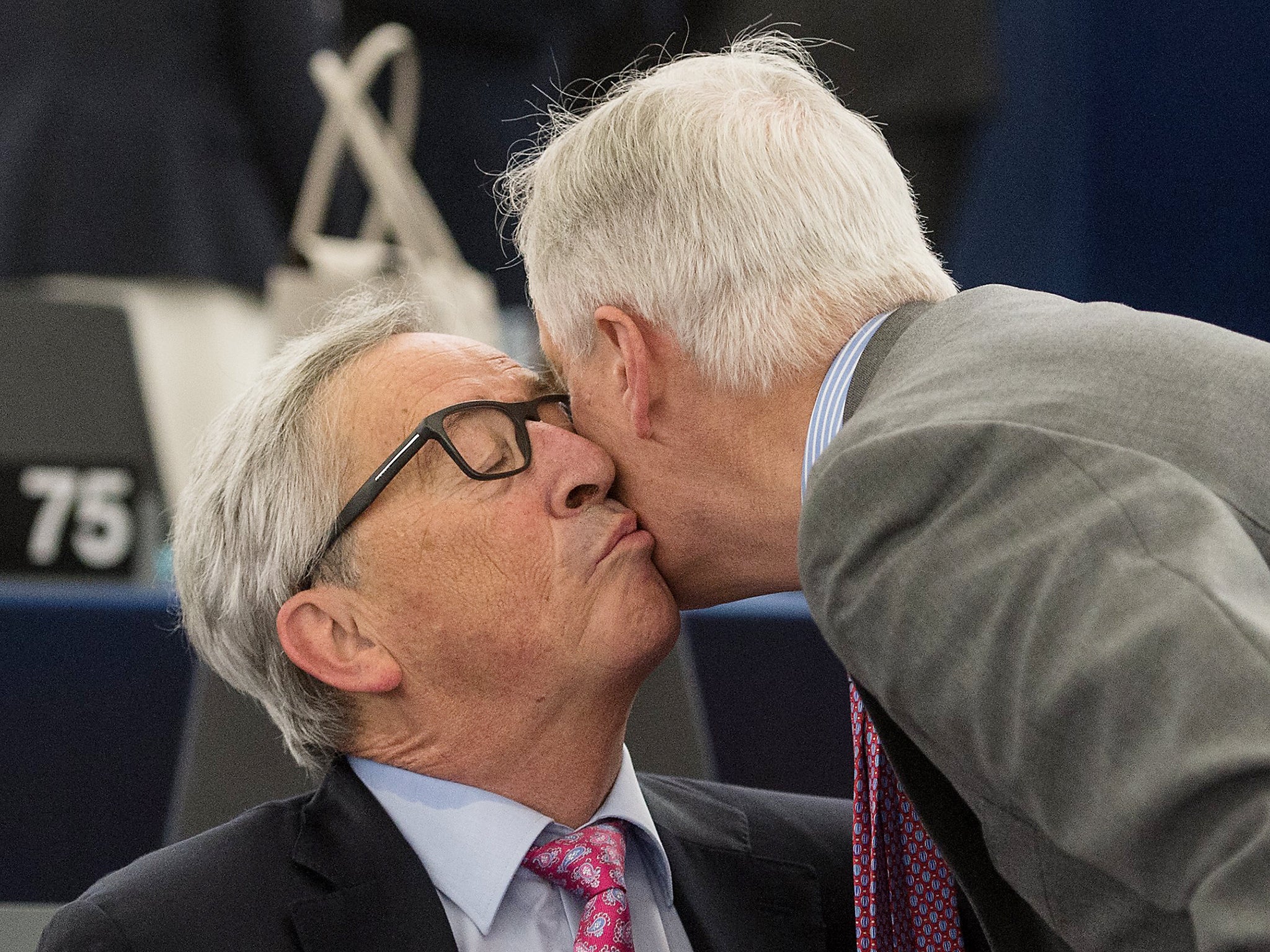As Brexit talks open, look out for these signs from Europe that show whether Britain's economy can survive
The aim of the European negotiators may be to destabilise the British side. If so, expect a hostile response in the European media, for that is what they will be briefed to report


Your support helps us to tell the story
From reproductive rights to climate change to Big Tech, The Independent is on the ground when the story is developing. Whether it's investigating the financials of Elon Musk's pro-Trump PAC or producing our latest documentary, 'The A Word', which shines a light on the American women fighting for reproductive rights, we know how important it is to parse out the facts from the messaging.
At such a critical moment in US history, we need reporters on the ground. Your donation allows us to keep sending journalists to speak to both sides of the story.
The Independent is trusted by Americans across the entire political spectrum. And unlike many other quality news outlets, we choose not to lock Americans out of our reporting and analysis with paywalls. We believe quality journalism should be available to everyone, paid for by those who can afford it.
Your support makes all the difference.This will be a week when UK politics may become even less certain, but its future economic relationship with Europe will probably become clearer.
This paradox of political uncertainty increasing economic clarity will be demonstrated in two events: the Queen’s Speech and the start of EU negotiations over Brexit.
We do not yet know whether it will be possible to get the Queen’s Speech through Parliament, for though the balance of probability is that it will, the past months have taught us to expect the unexpected. It is scheduled for Wednesday and will introduce two years of legislation, for it is now confirmed that there will be no Queen’s Speech next year. This last happened in 2011.
What is in the speech will be less important than the way it is received. There will presumably be a new Prime Minister within the next few months, but it could be weeks rather than months.
The formal start of negotiations on Monday will be just that – formal. The thing to look for will be the way this is reported in the European press. The aim of the European negotiators may be to destabilise the British side. If so, expect a hostile response in the European media, for that is what they will be briefed to report.
If on the other hand there is a more guarded reaction, then it would signal that the EU’s aim is to persuade the UK to follow the Norway option, as a member of the European Economic Area. It would be absurd to make too much of week one in what will be a long and difficult negotiation. But a British team that seeks to reach an agreement that most of the 48 per cent who voted to remain in the EU can accept as reasonable will find it has more of a following wind from the other side.
The key point is that the outcome will depend not so much on what the UK wants but what Europe wants.
The problem this week is that these two events will drown out everything else. That includes economic forces, which will have just as big an influence on our future prosperity as EU membership. Remember even the most negative calculations of the impact of leaving the EU put it as less serious than the impact of the banking crash.
Top of my list of other things is the reaction to the rise in US interest rates last week. If the market accepts it in its stride, then fears of a stock market correction will recede for a while.
If on the other hand there are jitters – and there could be a really nasty correction out there – then we may start to see more people calling the top of the economic cycle as well as the financial one. That does not mean catastrophe for US Inc, and intuitively the top of the economic cycle is some way off. But watch the reaction.
Look out too for the Amazon effect. Amazon buying Whole Foods is huge. It signals that Jeff Bezos (who has just regained his position as the world’s second richest person) thinks that for groceries at least there is place for physical stores.
At some stage in the next decade we will reach a balance between online shopping and physical store shopping. We are not there yet and until we can glimpse that equilibrium, shopping malls and supermarkets will struggle. Meanwhile, this is boost for upmarket physical stores.
Finally, there will be the reaction to the Greek credit deal last week. Is the European project secure? It was a “kick the can down the road” affair but given Greece’s relatively small size maybe you can just keep a-kicking.
The European economy as a whole is picking up a bit, which is good news for the UK too. But the imbalances between north and south in the eurozone have not gone away, and have yet to be tackled.
Join our commenting forum
Join thought-provoking conversations, follow other Independent readers and see their replies
Comments